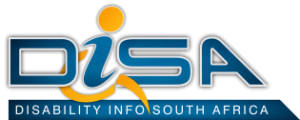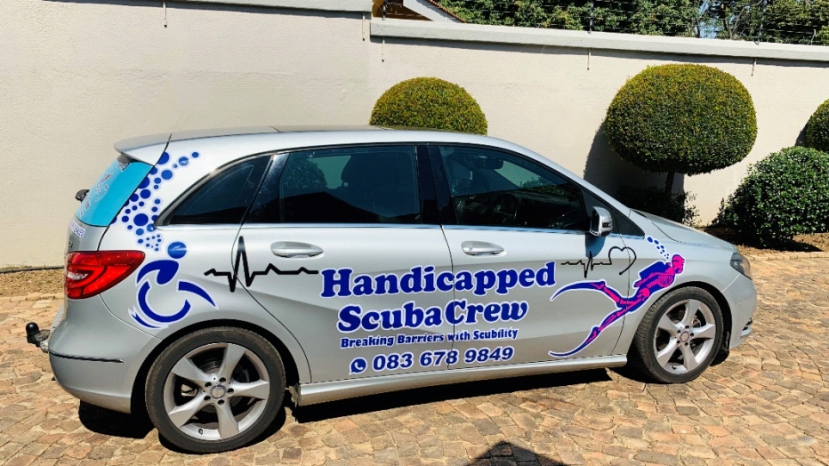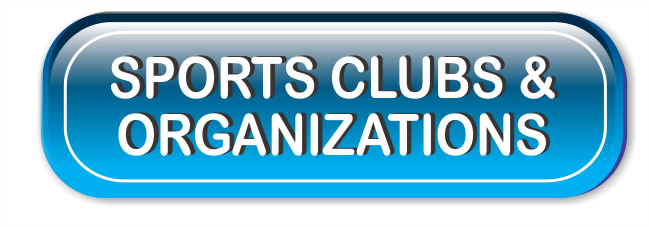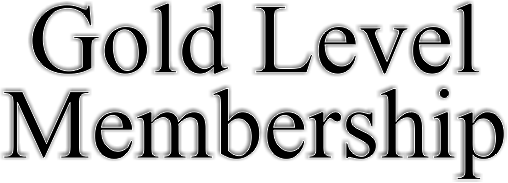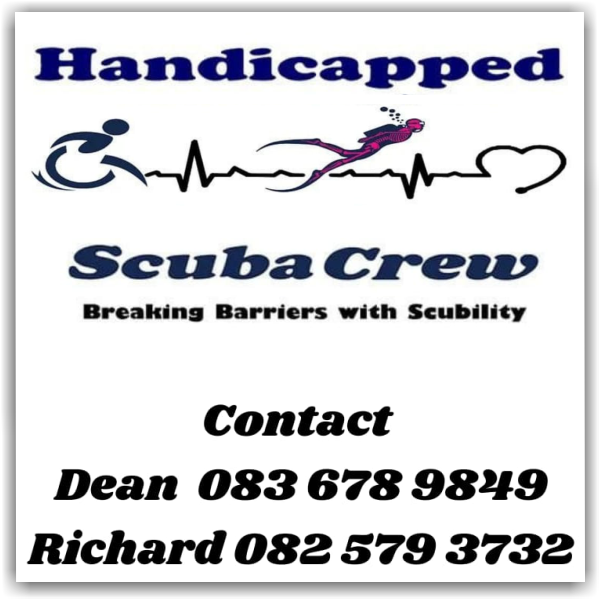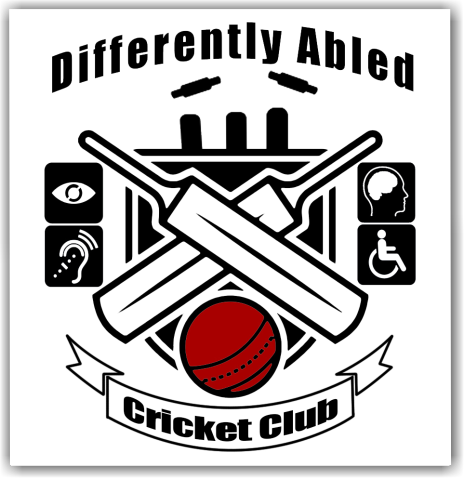Sport for Visual Impaired
Contents: To jump to the topic you would like, click on the links below
Introduction
Persons who are Blind or have Visual Impairments of all ages can take part and benefit from activities like Sports, Hobbies and other physical activities. These activities are a good way to increase the verbal, social, and mobility skills of children with Visual Impairments. Being active in music, clubs, sport and other after-school programs can help children to strengthen their language skills, gain physical agility as well as confidence, and understand social situations. Parents and teachers who push students with Visual Impairments to have as normal experience as possible, not only help them gain skills and develop self-reliance, but also help other students understand how to work with people who are different. Adults who are Blind or have Visual Impairments, also benefit from Sports and Hobbies, as these activities not only help prevent depression, but can also help them to meet other people and remove some of the stigma associated with having a disability. Many Sports persons with Visual Impairments inspire others and help society to learn about persons with disabilities. Blind and partially sighted people can participate in sports, such as swimming, cycling, cricket, Judo, athletics and many more. Some sports have been invented or adapted for the blind, such as goalball, association football, cricket, golf, and tennis. The worldwide authority on sports for the blind is the International Blind Sports Federation (IBSF).
Disability Sports in South Africa are both very popular & successful. Athletes with Visual Impairments are included in the Paralympics Games, where the South African Paralympics team has consistently finished near the top of the medal table at every Summer Paralympics Games since the country was re-admitted. Sportsman with impairments in South Africa have in-fact outperformed their able bodied teams by some distance in the Paralympics in comparison to the Olympics. Disabled sports have improved remarkably since 1970, with some sportsman earning a living from their sport.
Tournaments
There are a variety of sports tournaments that a person who is Blind or Visually Impaired can compete in. They include:
- The Paralympic Games
- IBSA World Championships and Games
Paralympic Games & IPC
The International Paralympic Committee (IPC) were founded on the 22nd of September 1989 as a non-profit organisation and are based in Bonn, Germany with aims to develop sports opportunities for all people with an impairments from the beginner to elite level. The Paralympic Games comprise all the sports contested in the Summer and Winter Paralympic Games. As of 2016, the Summer Paralympics will include 22 sports and 526 medal events, and the Winter Paralympics include 5 sports and disciplines and about 72 events. The Paralympic Games are a major international multi-sport event for athletes with disabilities which includes blindness. Paralympic sports refers to organized competitive sporting activities as part of the global Paralympic movement. These sports are organized and run under the supervision of the International Paralympic Committee and other international sports federations.There were nine sports which were included at the last Paralympic Games for the Blind and persons with Visual Impairments which the International Paralympic Committee has direct governance over, they include: Athletics, Cycling, Equestrian, Football 5 a side, Goalball, Judo, Rowing, Sailing and Swimming. The number and kinds of events may change from one Paralympic Games to another.
Athletes with visual impairments range from partial vision, sufficient to be judged legally blind, to total blindness. This includes impairment of one or more component of the visual system (eye structure, receptors, optic nerve pathway, and visual cortex). The sighted guides for athletes with a visual impairment are such a close and essential part of the competition that the athlete with visual impairment and the guide are considered a team. Beginning in 2012, these guides (along with sighted goalkeepers in 5-a-side football became eligible to receive medals of their own. People with vision impairments have participated in the Paralympic Games since the 1976 Toronto summer Paralympics.
The International Paralympic Committee (IPC) is the global governing body of the Paralympic Movement. Its purpose is to organise the Summer and Winter Paralympic Games and act as the International Federation for ten sports, supervising and coordinating World Championships and other competitions.
The vision of the IPC, run by 200 members, is ‘To enable Para athletes to achieve sporting excellence and inspire and excite the world.’
- Enable - Creating conditions for athlete empowerment
- Para athletes - The primary focus, from initiation to elite level
- Achieve - Sporting excellence is the goal of a sport centred organisation
- Inspire and excite - Touch the heart of all people for a more equitable society.
The IBSA World Championships
The IBSA World Championships and Games is held every four years. The first games took place in 1998 in Madrid, Spain. This Tournament is organized & run by The International Blind Sports Federation (IBSA), which is a nonprofit organization founded 1981 in Paris, France.
IBSA's mission is to promote the full integration of blind and partially sighted people in society through sport and to encourage people with a visual impairment to take up and practice sports. IBSA is a full and founding member of the International Paralympic Committee (IPC).
IBSA is the international federation for several sports for people with a visual impairment, including three Paralympic sports (Five-a-side football, Goalball and Judo), Powerlifting, Ten-pin bowling, Nine-pin bowling, Torball, Athletics, Alpine skiing, Biathlon, Swimming, Shooting, Archery, Showdown, Nordic skiing, and Cycling.
IBSA also organizes world and regional championships in many of its sports. Regional or continental championships are generally held in odd years, while world championships take place every four years in even years when there are no Paralympic Games.
Classification
The B3 classification is used, in order for athletes of varying degrees of visual impairment to be able to compete. The classification process is a medical based Paralympics classification for blind sport. Competitors in this classification have partial sight, with visual acuity from 2/60 to 6/60. It is used by a number of blind sports including Para-alpine skiing, Para-Nordic skiing, blind cricket, blind golf, five-a-side football, goal ball and judo. Some other sports, including adaptive rowing, athletics and swimming, have equivalents to this class.
Athletes with visual impairments ranging from partial vision, sufficient to be judged legally blind, to total blindness. This includes impairment of one or more component of the visual system (eye structure, receptors, optic nerve pathway, and visual cortex).
The B3 classification was first created by the IBSA in the 1970s, and has largely remained unchanged since despite an effort by the International Paralympics Committee (IPC) to move towards a more functional and evidence-based classification system. Classification is often handled on the international level by the International Blind Sports Association (IBSA) although it is also handled by national sport federations. There are exceptions for sports like athletics and cycling.
B3 Classification
Eligible Paralympics sports for the B3 classification include adaptive rowing, athletics, cycling five-a-side football, goal ball, judo, Para-alpine skiing, Para-Nordic skiing, and swimming. On the Paralympics level, a number of disability sports are not open to this classification or other visually impaired competitors including archery, basketball, boccia, curling, fencing, ice sledge hockey, power lifting, rugby, shooting, table tennis, tennis, volleyball. Equestrian sport is not open to Paralympics sport in this classification, and the FEI classification system has no parallel classification available for other levels of national and international competition. For non-Paralympics sports or sports removed from the Paralympics programme, the classification is used in blind golf and lawn bowls.
Performance can differ for this class compared to other blind classes. In swimming, the B1 class is significantly slower than B2 and B3 classes in 100 meter freestyle. The B3 class is significantly faster than B1 and B2 in the 100 meter backstroke.
Equipment & Guides
Some Sports don't require adapted equipment but some Sports and Hobbies require the assistance of adapted Sports Equipment Aids so that Persons with Visual Impairments can take part. An increasing number of persons with disabilities are participating in sports, leading to the development of new assistive technology. Equipment utilized by competitors in the B3 class may differ from sport to sport, and may include sighted guides, guide rails, beeping balls and slapsticks. There may be some modifications related to equipment and rules to specifically address needs of competitors in this class to allow them to compete in specific sports. Some sports specifically do not allow a guide, whereas cycling and skiing require one.
The use of a sighted guide by people in this class is dependent on the specific requirements of the sport. In athletics, where the parallel classification is T13, runners do not use guides in competition and generally do not use them in training. In cycling, this classification uses a guide, while utilizing a tandem bicycle with the guide sitting at the front. When a cyclist is looking for a guide, they are encouraged to find one with a pace similar to their own.
Equipment is utilized by competitors in this class and The sighted guides for athletes with a visual impairment are such a close and essential part of the competition that the athlete with visual impairment and the guide are considered a team. Beginning in 2012, these guides (along with sighted goalkeepers in 5-a-side football became eligible to receive medals of their own. Visit our Assistive Devices page, to find out more about Audible Balls & Other Equipment.
The South African Sports Confederation and Olympic Committee (SASCOC)
The South African Sports Confederation and Olympic Committee (SASCOC) is the National Olympic Committee (NOC) and National Paralympic Committee (NPC) for South Africa, and are the responsible body for South Africa at the Commonwealth Games. SASCOC is also responsible for high-performance sport in the country and coordinates the relationship with various international sports federations. They not only help look after all our various National Federations who are affiliated to them, but are also responsible for awarding National Protea Colours to athletes who have met the criteria to represent South Africa in different sporting codes, including:
Athletics, Swimming /Aquatics, Waterpolo, Archery, Badminton, Baseball, Basketball, Boxing, Canoeing, Cycling, Equestrian, Fencing, Football, Gymnastics, Handball, Hockey, Judo, Karate, Modern Pentathlon, Netball, Rowing, Rugby 7s, Sailing, Shooting, Table Tennis, Taekwondo, Tennis, Triathlon, Volleyball, Weightlifting and Wrestling. Not all of these sports are however available for all persons with Visual Impairments.
South African Sports Association for Physically Disabled (SASAPD)
The South African Sports Association for Physically Disabled ( SASAPD) was established in 1962 and focuses on the development and promotion of the sporting codes offered at Paralympic level for athletes with Physical Disabilities, Visual Impairments and blindness.
They offer pathways for qualification towards Paralympic Games across a variety of sports, through their affiliations with international bodies such as: IBSA, IWAS, CPISRA and The Nedbank National Championships for Physically Disabled. They also work and are an affiliate member of SASCOC as well as being associated members of a number of other national sporting federations. SASAPD promote and a number of sports including: Para Athletics, Boccia, CP Football, Para Cycling, Goalball, Judo for the blind, Para Powerlifting and Para Swimming.
In order to ensure that competition in sport is fair and equal, a classification process is put in place which provides a structure for fair competition. It is important to note that the competitive structure provided by Classification systems is not only important for elite sport but also is essential for promoting grassroots participation in Para-sports by people with an impairment.
Provincial Sports Associations
There are also many Provincial Sports Associations that govern a variety sports in a particular province in South Africa, such as:
The Free State Sport Association for the Physically Disabled and Visually Impaired: have a sound understanding and passion to build character through sport. "Our executive has years of experience working with the disabled in sport and other social environments. We have an in-depth understanding of our sport codes and the special classification criteria that is associated with each code.
At the FSSAPD we are all volunteers. We serve the association with dedication and commitment to honor our most valued assets, our Athletes. We cater for the following sporting codes: Athletics – Track and Field, Boccia, CP Soccer, Para Cycling, Goal Ball, Swimming. Each of these codes is equally important to us but as with everything in life we are also limited with resources. With funding we will be able to support and grow all our sporting codes to the best in the country."
Sports Clubs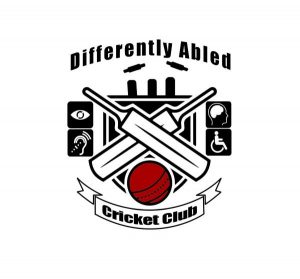
Sports Clubs are also available, which offer either a single or a variety of sports in a particular province or city in South Africa, these clubs may include "Disabled" and Abled Body athletes or just "Disabled" athletes. There are a variety of these clubs in South Africa, including:
The Differently Abled Cricket Club: which is an open cricket club for the differently abled cricket players, which includes the Blind, Deaf, Intellectually Impaired (SID and MID) and Physically Disabled. We are the only club of this kind in South Africa and we would like to make it our goal in getting other regions to follow suit!
In South Africa organisations such as the Handicapped Scuba Crew promote and offer Scuba 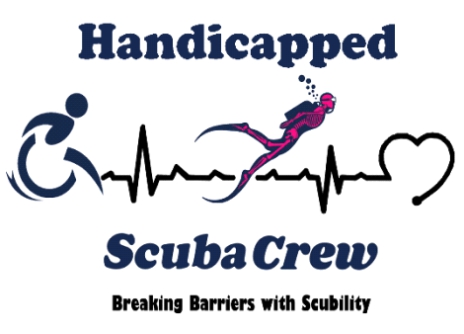 Diving for persons with disabilities, as both an activity and a form of therapy, thus improving the lives of many persons with disabilities throughout South Africa and promoting Scuba Diving for persons with disabilities.
Diving for persons with disabilities, as both an activity and a form of therapy, thus improving the lives of many persons with disabilities throughout South Africa and promoting Scuba Diving for persons with disabilities.
Handicapped Scuba Crew: Handicapped Scuba Crew is a Nonprofit Organization (Registration No: NPO 240/281) which is based in Pretoria and has a mission to break down barriers with “Scubility” – “We Use SCUBA as a tool for rehabilitation back into normal society and to make sure that persons with disabilities are given the same opportunities to receive excellent quality training, certification and dive adventures, as able-bodied divers do. We enhance the lives of all persons with disabilities and their families through the sport of SCUBA Diving. - We raise funds for all of these activities.”
In 2019 the Handicapped Scuba Crew completed more than 400 Sea Dives (Veneus include: Sodwana Bay; Aliwal Shoal; Ponta do Ouro Mozambique and the Red Sea); more than 1000 Pool Sessions and more than 40 x courses.
Handicapped Scuba Crew have worked with persons with various disabilities/conditions, including persons with mobility impairments or conditions. Persons who have dived with us include Persons with Spinal Cord Injuries - paraplegics and quadriplegics; Persons with Cerebral Palsy and Multiple Sclerosis; Amputees and persons with Spina Bifida; Hemiplegics and Persons with Muscular Dystrophy; Persons who have had a Stroke and Persons with Cancer; persons who are Deaf; Autistic; Blind, or have Down Syndrome; PTSD and TBI.
Adaptive techniques enable our organization to live our ethos of everyone is equal, giving people as above an equal opportunity to experience all parts of the dives, including sitting on the pontoon if viable! The benefits of Scuba Diving are vast and include both mental and physical benefits. New medical studies confirm the therapeutic benefits of Scuba Diving and the Handicapped Scuba Crew have been recognised for the work that they are doing and the benefits of Scuba Diving for persons with disabilities.
If you are interested in Scuba Diving, or would like to find out more about the Handicapped Scuba Crew or various events planned, please feel free to contact: Dean on: 083 6789 849 or via email: dean@scubacrew.co.za; Richard on: 082 579 3732 or via email: info@scubacrew.co.za or Sue on: 064 545 1671 or via email: sue@scubacrew.co.za.
You can also visit the Handicapped Scuba Crew: Facebook Page or click on the Link below to find out more about Scuba Diving for persons with disabilities and the Handicapped Scuba Crew.
Types of Sport
Many "disabled sports" are based on existing able bodied sports, which have been modified to meet the needs of persons with disabilities, they are sometimes referred to as adapted sports. Not all disabled sports are adapted, several sports have been specifically created for persons with a disabilities and have no equivalent in able-bodied sports.
Persons with disabilities benefit from physical activities and the barriers to being active are starting to come down. A wide variety of equipment is available and activities have been adapted so people of all abilities can participate.
Sports Appropriate For My Disability
Below are a list of a few sports that are available to the Blind and persons with Visual Impairments in South Africa, these sports are available at social, club & Provincial level, while some are available at the Paralympics & The IBSA World Championships, where the classification process is used. To view more information about these Sports and others, view the menu on the left, or click on the links below:
Archery & Judo
Both Archery and Judo are available for individuals who are Blind or have Visual Impairment's. Both sports are competed in at social, club & Provincial level, as well as at International level. They are both available at the Paralympics and are not only a source of fun, but great exercise, a challenge, teachers discipline, & is a great way to meet new people.
Athletics & Swimming
Both Athletics & Swimming are available for the blind at the Paralympic Games, where the classification process is used. Both sports are enjoyed at social, club & Provincial level, as well as at International level. Both Athletics & Swimming in South African is governed by SASCOC " South Africa’s Sports Confederation and Olympic Committee." They not only help look after all our various National Federations who are affiliated to them, but are responsible for the awarding for National Protea Colours to athletes who have met the criteria to represent South Africa in these different sporting codes, however these sports are available to all who wish to participate.
Blind Cricket
Cricket for the Blind is the most unique version of the game and the only version that boasts major adaptations of the rules as well as the equipment. Cricket South Africa (CSA) has three Disability entities affiliated to organisation, of which Blind Cricket South Africa (BCSA) is one of them. Cricket for the blind in South Africa is co-ordinated by Blind Cricket South Africa, which is affiliated to the international governing body the World Blind Cricket Council. The current MCC laws of cricket are adhered to and certain adaptations and equipment is used to make the game accessible to the blind and persons with Visual Impairments. Cricket for the Blind is governed by the World Blind Cricket Council (WBCC) since 1996 and is also available in South Africa at Provincial and Club level.
Cycling
Cycling for the Disabled was first developed by blind cyclists who first competed using tandem bicycles. Cycling was introduced as a Paralympic Sport in Seoul in 1988. Depending on their classification, athletes use a bicycle, tricycle, tandem or hand cycle. Cycling can be competed in, in both track or road events for individuals and teams with Sprints, Individual Pursuits, 1,000m Time Trial, Road Races and Road Time Trials. These events are for both men and women. The competition includes persons with a visual impairment, cerebral palsy, amputations or other physical disabilities can participate in classes depending on their degree of function and the skills required for Cycling. Athletes are classified in accordance with the nature & severity of their disability or combinations of disabilities and can competed at social, club & Provincial level, as well as at International level.
Golf & Bowls
Both Golf & Bowls are available to most individuals with Visual Impairments in South Africa. The classification process is used to guarantee that no matter your disability, everyone can compete on an even footing. Both sports are played at social, club & Provincial level, as well as at International level.
Paragliding
Paragliding is the recreational and competitive adventure sport of flying paragliders. The pilot sits in a harness suspended below a fabric wing comprising a large number of interconnected baffled cells. Wing shape is maintained by the suspension lines, the pressure of air entering vents in the front of the wing, and the aerodynamic forces of the air flowing over the outside.
Despite not using an engine, a paragliders flight can last many hours and cover many hundreds of kilometers, though flights of one to two hours and covering some tens of kilometers are more the norm. By skillful exploitation of sources of lift, the pilot may gain height, often climbing to altitudes of a few thousand meters. Paragliding takes allot of skill and hours of practice, but this does not mean that you can't enjoy the thrill of paragliding even if you have a disability.
Scuba Diving
Scuba Diving is a very popular recreational activity for both able bodied persons and persons with disabilities across the world, not to mention in our beautiful waters and climate of South Africa. Scuba Diving provides a wide variety of benefits for persons with impairments and is enjoyed by persons with disabilities/impairments, including persons who are Blind or have a visual Impairment. Having a Visual Impairment does not affect your ability to Scuba Dive but they may need to be given extra guidance. Thanks to organisations in South Africa such as Handicapped Scuba Crew, who are willing and able to make these adaptions to accommodate everyone, Scuba Diving can be enjoyed by more people in South Africa and around the world. The Handicapped Scuba Association promotes Scuba Diving in other countries around the world, each year they plan Scuba Diving trips to exotic locations led by specially trained Scuba Divers and, ensuring that you have a safe and comfortable Scuba Diving experience. Please read the page below to find out more about these two organisations and how Scuba Diving can benefit you.
Please send us information on any other sport.
Disclaimer
If you would like to find out more about these & other Sports Clubs, Organizations or Sports that are available for you, you can visit our Sports Search Facility: http://disabilityinfosa.co.za/search-for-info/sports-clubs-organizations/
Please note that the FREE services and website that we offer is privately run & funded and is not run or funded by the Government or any Organization. We therefore rely on advertising and donations to continue to supply and improve this Free service. The Companies, Clubs, Schools and Organizations that have their logos on this site, have advertised or made donations to the Website and have therefore assisted us be able to continue to offer this free Service. Please support them as they have supported Us and please contact us if you can advertise with us or would like to make a donation!
N.B: This Website is continually changing and being improved some sections may therefor be incomplete or have links and contact details that are outdated. We are making every effort to keep this to a minimum, so we ask for your patients in this regard and to please Contact Us if you notice that your Companies, Clubs, Schools or Organizations details are incorrect or have changed.
Thank you for visiting our website, we hope that it will be helpful, please feel free to visit our Facebook Page to leave a comment.
References
- https://en.wikipedia.org/wiki/Disability_classification_in_golf
- http://www.sadga.co.za/
- http://www.outlooktrust.org/paralympic-sports-visually-impaired/
- http://sasapd.org.za/
- http://www.sascoc.co.za/
- https://en.wikipedia.org/wiki/Paralympic_Games
- http://www.hsa-sa.co.za/
- www.extremeabilities.co.za
- http://martialartssa.co.za/
- https://en.wikipedia.org/wiki/Wheelchair_racing
- http://martialartssa.co.za/
